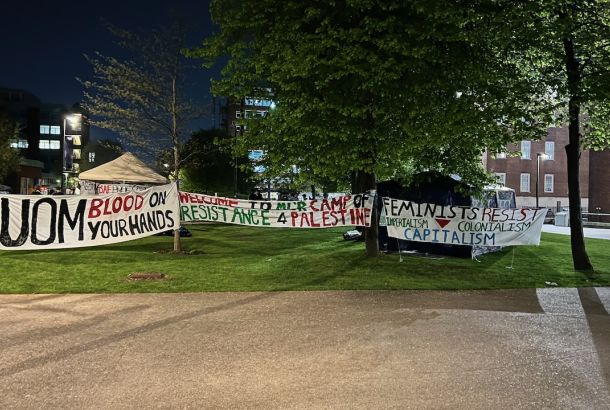All Student Vote lacked face-to-face engagement
The low turnout in the recent ‘All Student Vote’ was due to lack of “face-to-face engagement”, the General Secretary of the Students’ Union has suggested.
Less than 450 students voted in the ‘preferendum’ to choose new Executive Officer positions for the 2018/19 academic year.
Four options were offered in the vote: keep the same positions as they are at present, introduce a postgraduate officer, introduce an international officer, or introduce both. Voting took place alongside the Students’ Union part-time officer and NUS-delegate elections.
Alex Tayler, General Secretary of the Students’ Union, told The Mancunion: “The real issue was there wasn’t enough face-to-face engagement. We did have a stall every day of the election period but what we’re doing now is trying to engage with lots of different societies, different student groups, in a much more productive way.
“And the question will be framed around what do you want from the Union rather than what should the office positions be because people care about what the Union delivers but they don’t care as much, I don’t think, about how we’re run.”
Alex added: “I think the comms around [the vote] was actually quite good”, citing the fact that “everyone got an email, so everyone that checks their e-mails would have known about it”, adding that “there was stuff on social media.”
George Flesher, a second-year American Studies student who didn’t vote in the ‘All Student Vote’, spoke to The Mancunion and challenged this idea: “Amongst the high amount of emails we already receive in our university inboxes, it’s quite easy to mistake or overlook e-mails from the Students’ Union.
“This is especially true at times of the year such as this when everyone is looking out for e-mails from tutors about essays.”
Lawrence Rosenberg, a third-year History and Politics student successfully elected as an NUS delegate for 2017/2018, previously told The Mancunion that he also didn’t vote in the referendum.
Lawrence said: “I didn’t even know there was an election, it wasn’t publicised nor even when I voted for NUS did I find the easy system to understand” and added that the options presented to students in the All Student Vote “just weren’t clear at all.”
Alex Tayler said that the Executive Officer team had decided to run the votes all in one go in the hope that students “wouldn’t get election fatigue.”
He said: “What basically happened was the NUS elections and the PTO elections took priority… the voting for the ‘All Student Vote’ was at the very bottom of a page of about 20 or 30 other positions, a lot of people probably got bored, realistically.”
Another referendum cannot be triggered by the Executive Officer team without the consent of Senate or a petition from 400 students to hold another vote. Alex suggested another referendum was “unlikely.”
The Executive Officer team have said that they “will be taking the result into account.”
Alex said: “Essentially, we’re going to try and put a paper together based on [a] collection of data from the student groups, workshops, and the referendum result, and put something together to present a final thing to Senate to approve on.”







